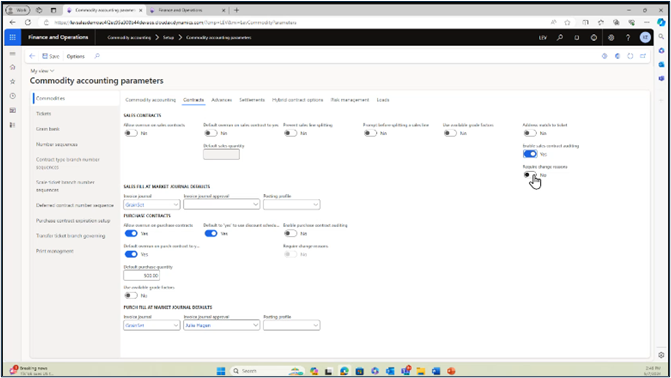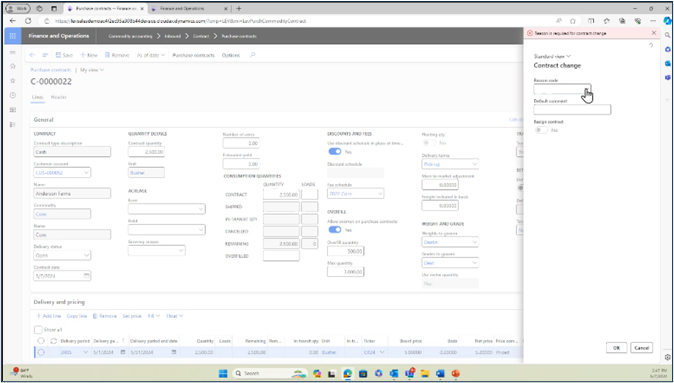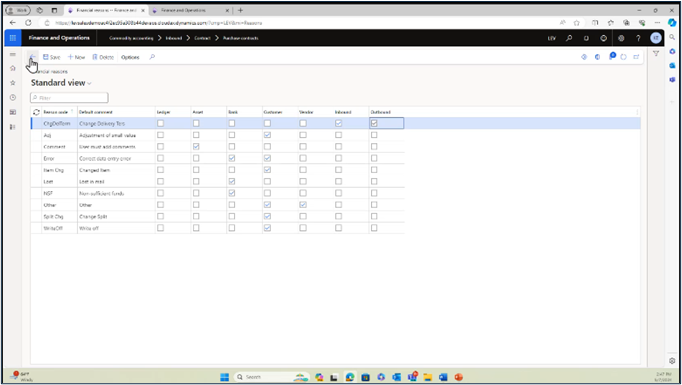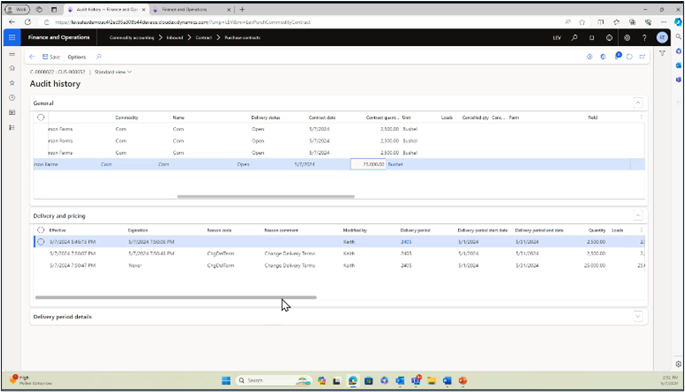Enhancing Transparency with Contract Auditing of Sales and Purchase Contracts
The latest update from Levridge, 2024 Release 1, introduces a robust feature aimed at revolutionizing how businesses handle contract changes—contract auditing. This feature not only provides a comprehensive audit trail of contract modifications but also enhances control over contract management, ensuring that every change is meticulously tracked and justified.
Understanding Contract Auditing in Levridge 2024 Release 1
Contract auditing offers a detailed record of how contracts evolve over time. It logs every modification, identifying who made the change, what was altered, and why it was necessary. This feature is applicable to both purchase and sales contracts, thereby providing a holistic solution for contract management across different business functions.
Enabling Contract Auditing
To activate the benefits of contract auditing, users must first enable the feature in the platform. This can be done through the commodity accounting setup. Here’s a step-by-step guide:
1. Navigate to Commodity Accounting Parameters: Under the setup menu, select commodity accounting and then commodity accounting parameters.
2. Enable Sales and Purchase Contract Auditing: Within the commodities and contracts tabs, toggle the options to enable sales contract auditing and purchase contract auditing.

Implementing Contract Changes
Once the auditing feature is enabled, making changes to contracts becomes a structured process. For instance, if a modification is needed in a purchase contract, such as changing delivery terms from “FOB” to “picked up,” the system will prompt the user to provide a reason for the change before proceeding. This mandatory step ensures that all modifications are justified and recorded.

Setting Up Reason Codes
Reason codes play a crucial role in the contract auditing process. They provide standardized explanations for contract changes, making it easier to track and analyze modifications. Users can set up these codes by:
1. Accessing Reason Codes Setup: Within the contract management interface, users can add new reason codes relevant to their business processes.
2. Defining Inbound and Outbound Comments: Each reason code can be accompanied by inbound and outbound comments, providing detailed context for the changes.
For example, if a delivery term change is made, the reason code “Change Delivery Terms” can be selected, ensuring that anyone reviewing the contract history understands why the modification was necessary.

Viewing Audit History
The audit history feature provides a detailed log of all contract changes, segmented into header and line information. This allows users to see not only the current state of the contract but also every modification made over time. For instance, if the quantity of goods in a contract is changed from 2,500 to 25,000 units, this change is logged in the audit history, showing who made the change and when.

Enhancing Accountability and Transparency
The introduction of contract auditing significantly enhances accountability and transparency in contract management. By requiring reasons for changes and maintaining a comprehensive audit trail, businesses can ensure that all contract modifications are justified and documented. This feature is particularly beneficial for audit compliance, internal reviews, and mitigating disputes arising from contract changes.
Practical Application: Sales Contracts
The contract auditing feature is equally effective for sales contracts. For instance, if a transportation mode for a shipment is changed from truck to rail, the system prompts for a reason code. This change is then recorded in the audit history, providing a clear record of why the transportation mode was altered.
Conclusion
Levridge 2024 Release 1 contract auditing feature is a game-changer for businesses aiming to enhance their contract management processes. By offering a detailed audit trail, requiring reason codes for changes, and ensuring transparency, this feature empowers businesses to manage their contracts more effectively. As companies navigate the complexities of modern business, having a reliable contract auditing system in place is invaluable for maintaining accountability, compliance, and operational efficiency.